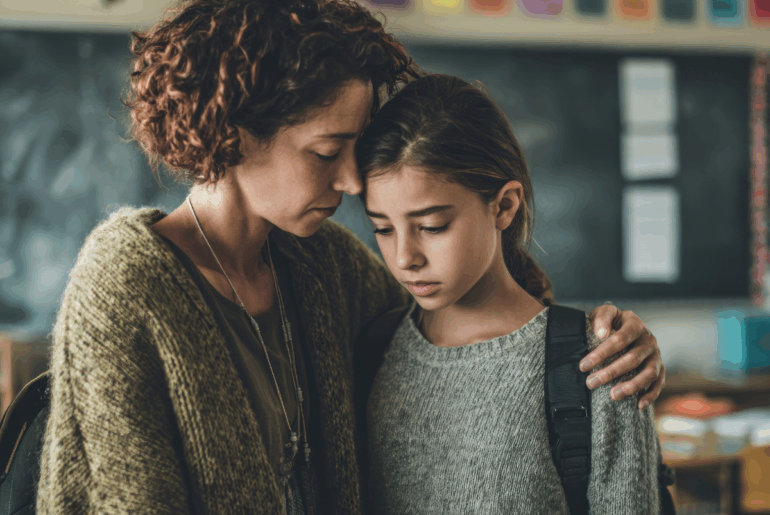With each new school year comes renewed fears of gun violence in schools for parents, faculty, and students alike. In recent decades, school shootings have become all-too-common in U.S. schools. In 2025, there have been at least 141 incidents of gunfire on school grounds, resulting in 44 deaths and 129 injuries nationwide.

Former teacher, instructional coach, and principal Krystal Hardy Allen offered her expert guidance on helping children process their grief and trauma after experiencing gun violence at school. The author of What Goes Unspoken: How School Leaders Address DEI Beyond Race, Allen has years of valuable experience working with schools and families on cultural competence in grief counseling, trauma-informed leadership, and actionable strategies for building resilience in students, families, and educators.
Tips for supporting kids in the wake of a school shooting
Allen emphasized the importance of establishing emotional and psychological safety following a violent incident at school. In her words, “There is a need for a deeper definition of safety.” Allen offered the following actionable tips that parents and schools can follow to provide trauma-informed support to children in the aftermath of a school shooting—
- Center yourself before helping others. After a traumatic incident, it’s natural to react with fear or anger. Before processing the events with a child, take a moment to get calm and regulate any activating feelings that may increase your child’s anxiety in your presence. Make sure they know that any feelings they are experiencing are normal and valid.
- Don’t be afraid to show grief. While witnessing reactive fear and anger in others can increase anxiety—seeing adults express their sadness in a healthy way can be extremely helpful for kids after a traumatic incident. In Allen’s words, “Teach them what grief looks like.” When children see the adults in their lives grieving, it validates their own feelings and makes it clear that it’s okay to express them.
- Limit social media. Often in the aftermath of a school shooting, social media is flooded with misinformation, blame, and vitriol. As much as possible, limit your child’s access to social media in the days or weeks following a school shooting.
- Talk about coping skills. Make sure your child has access to the specific type of support that works best for them. Share a list of coping skills and mental healthcare options and talk through which ones sound the most helpful for their needs.
- Provide ongoing support. Long after a school shooting has left the news cycle, kids will continue to carry the burden of those memories with them. Ongoing counseling or mental health support long after the event is crucial for building long-term coping skills and thoroughly processing the trauma they experienced.
In the wake of a school shooting—whether in their own school or elsewhere—families, educators, and communities are left searching for ways to help children cope with grief, fear, and uncertainty. These trauma-informed strategies by Krystal Hardy Allen provide a path for long-term support for kids impacted by gun violence in schools.







